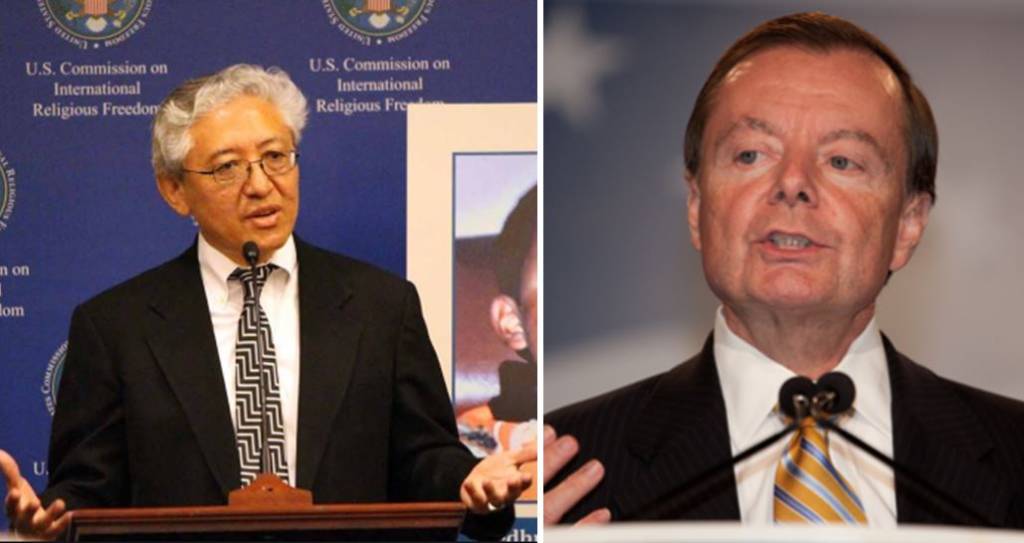The United States Commission on International Religious Freedom (USCIRF), the same body that had once recommended denial of US tourist visa to PM Modi after the Gujarat riots when he was the Gujarat Chief Minister, has once again gone out of its way to meddle in India’s internal matters.
Making deliberate misinterpretations about enactments like the CAA and Article 370 abrogation, this sham of a Federal Commission has recommended the State Department to designate India as a “country of particular concern” next to the likes of Pakistan, North Korea and China.
India has, of course, seen through the prejudices of the Commission and the Ministry of External Affairs has termed the report as “biased and tendentious”.
Anurag Srivastava, MEA spokesperson said, “We reject the observations on India in the USCIRF Annual Report. Its biased and tendentious comments against India are not new. But on this occasion, its misrepresentation has reached new levels.”
But as the vested interests of the USCIRF get called out and its biased approach appears to be writing on the wall, internal dissensions within the Commission are getting called out.
Two of the nine Commissioners have openly dissented with the USCIRF recommendation to recognise India as a “country of particular concern (CPC)”, while a third member also expressed his personal view of India.
Commissioner Gary L Bauer dissented saying, “I must dissent from the decision of my fellow Commissioners to recommend India, the world’s largest democracy, for designation as a ‘country of particular concern’, or CPC, placing India in a gallery of rogue nations in which it does not belong.”
Moreover, Commissioner Tenzin Dorjee also wrote a dissent note, stating, “India does not belong to the same category as authoritarian regimes like China and North Korea. India is the largest democratic nation in the world, where the CAA has been challenged openly by the opposition Congress Party and lawmakers, civil society, and various groups.”
In fact, USCIRF is a Federal body that is replete with vested interests. All its members pursue their own biases and tendencies through the Federal Commission.
Take for instance, Tony Perkins, the USCIRF Chairman who said, “Friends point out weaknesses among friends, so that they become stronger,” while talking about the Commission’s latest observations about India.
But Tony Perkins is actually no friend of India, rather he is a far-right evangelist who is never a mile away from controversy in the United States. It is ironical that USCIRF Chairman himself is an evangelist, and the Commission preaches freedom of religion to the entire globe.
Meanwhile, the questionable background of the USCIRF Chairman explains why the Commission has been having issues with the Foreign Contribution Regulation Act (FCRA) which was introduced by the Indian Government to improve transparency in the funding processes of NGOs.
As India looks to break the NGO-Missionary nexus in order to curtail the conversions industry within India, especially in the tribal belts, a serious conflict of interest is developing in the United States where the Chairman of the USCIRF happens to be an evangelist.
This is also the reason why the USCIRF has cited “anti-conversion laws” for designating India as a CPC. Which prominent anti-conversion law is the USCIRF taking about? There was no such law enacted last year. And even if India wants to enact a law barring forceful conversions, why should the USCIRF be bothered? Isn’t it directly related to Tony Perkins’ evangelist links?
It is only due to the USCIRF’s suspicious role that India has been denying visas to the USCIRF members for more than a decade. But the dissent notes raise certain pertinent questions.
The USCIRF tries to stigmatise India by raking up the CAA. It labels the persecuted non-Muslim minorities protected by the Amendment Act as “migrants”. Ironically, USCIRF also recognises Pakistan as a “country of particular concern”, thus recognising how Pakistan persecutes its minorities turning them into refugees.
On one hand, the USCIRF recognises the genocide of non-Muslim minorities in Pakistan, and on the other hand it terms those same minorities “migrants” when they seek refuge in India. This dichotomy has been invented only to bring down the Indian State to serve individual vested interests.
The report also cites the “Nationwide nationwide National Register of Citizens”- an imaginary legislation that hasn’t even been enacted to claim that Muslims would be rendered “Stateless”. Even if India enacts nationwide NRC to filter out non-citizens how will that lead to “Statelessness”.
If the USCIRF had gone about its job honestly it would have come to the conclusion that India’s CAA actually solves the issue of Statelessness perpetrated by Islamist countries in India’s neighbourhood by fast-tracking citizenship for non-Muslim minorities.
USCIRF is trying to fit India in the league of countries like Pakistan- where food is denied to Hindus during the Coronavirus Pandemics, something which USCIRF itself recognises, and China- which literally runs concentration camps to “de-radicalize” Uyghur Muslims and also harvests organs of its religious minorities.
The latest report of this American advisory body only exposes its fickle loyalties to the real cause of religious freedom, and how it has been reduced into a segment of the American deep state where every individual pursues his vested interests.
Of the 54 USCIRF Commissioners to date, 31 Commissioners have been Christians and these are Commissioners allegedly bear links with proselytising churches or organisations that explain why USCIRF is staunchly opposed to the Modi government’s FCRA and “anti-conversion laws” in India.
The fissures that have however appeared within USCIRF on the question of designating India as a “country of particular concern” only reveal how it is trying to strong-arm the Indian State into allowing the conversion industry to run unabated.
